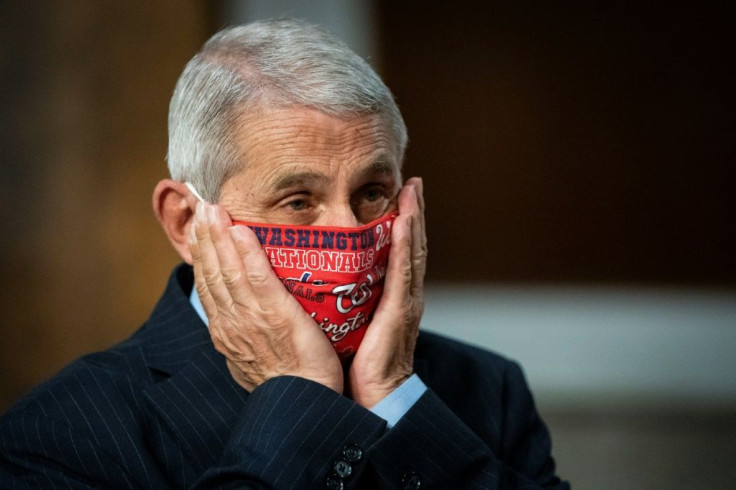Dr. Fauci Warns That COVID-19 May Never Be Eradicated

Dr. Anthony Fauci, the director of the National Institute of Allergy and Infectious Diseases and White House adviser on the coronavirus pandemic, warned Wednesday that COVID-19 may never be eradicated.
“I think with a combination of good public health measures, a degree of global herd immunity and a good vaccine, which I do hope and feel cautiously optimistic that we will get, I think when we put all three of those together, we will get control of this, whether it’s this year or next year. I’m not certain,” Fauci told the TB Alliance, an organization dedicated to the development of medication for tuberculosis.
At the same time, Fauci said “I don’t really see us eradicating it.” He claimed that the virus is different from SARS, a virus that was contained after it emerged in the early 2000s.
“I have never seen infection in which you have such a broad range literally no symptoms at all in a substantial proportion of the population to some who get ill with minor symptoms to some who get ill enough to be in bed for weeks," Fauci said. “Others get hospitalized, require oxygen, intensive care, ventilation and death. The involvement with the same pathogen is very unique.”
Fauci's comments contradict public remarks by President Trump, who has frequently downplayed the virus and claimed that it would disappear.
“It’s going to leave. it’s going to be gone. It’s going to be eradicated,” Trump said in April.
During a press briefing on Monday, Trump admitted that the current outbreak is likely “to get worse before it gets better.”
Fauci, along with other public health experts, were absent from the briefing.
Trump and Fauci have had a tense relationship. Trump has called Fauci “a little bit of an alarmist” and said he has “made a lot of mistakes.”
The U.S. has the most cases of COVID-19 in the world, as cases spike in sunbelt states such as Arizona, Texas and Florida. As of 2:25 p.m. ET, there are 3,925,025 coronavirus cases and 142,401 deaths in the U.S., according to data from Johns Hopkins University.
© Copyright IBTimes 2025. All rights reserved.





















